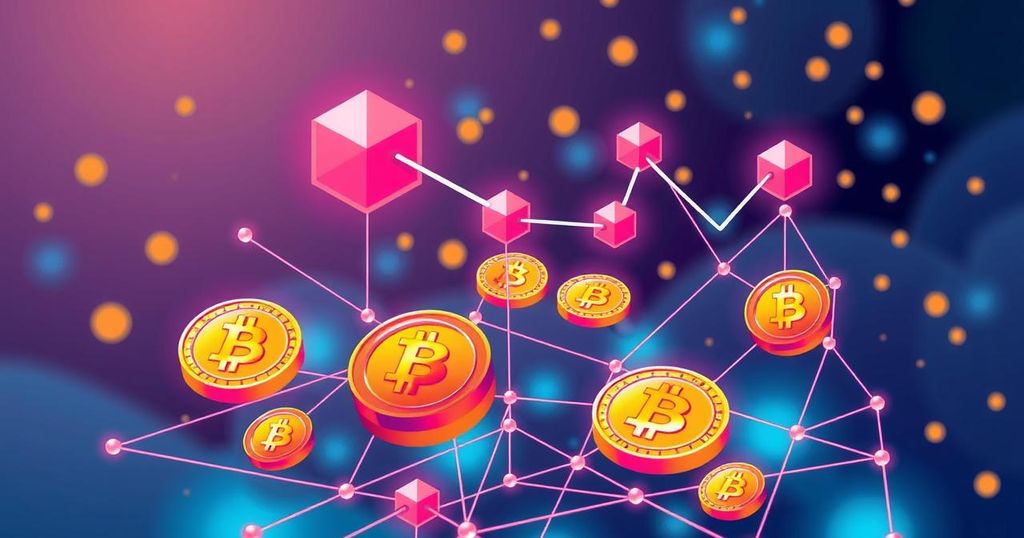Cardano Founder Calls for Bitcoin’s Own Bretton Woods
Charles Hoskinson, founder of Cardano, argues for a “crypto-native Bretton Woods” for Bitcoin, pushing for an algorithmic stable-value system free from traditional banks. He criticises centralized stablecoins as detrimental to Bitcoin’s ethos and advocates for using Bitcoin itself for stable value. Also, he anticipates a significant increase in Bitcoin demand over the next few years, leading to potential shortages. His libertarian views emphasize preserving Bitcoin against inflation and unnecessary government interference.
In a recent discussion, Charles Hoskinson, the founder of Cardano, has made a bold suggestion that Bitcoin deserves a new “crypto-native Bretton Woods.” He argues for a stable-value system, one that operates independently of traditional commercial banks and custodians. During a panel focusing on decentralized finance related to Bitcoin, Hoskinson reflected on the origin of Bitcoin, tracing its roots back to the 2008 financial crisis, and expressed his disdain for any return to traditional finance within the digital currency arena.
Hoskinson bluntly stated, “The reason Bitcoin exists is we had a divorce from the legacy financial system after 2008—and it was not a good divorce.” He’s clearly not a fan of centralized, asset-backed stablecoins, likening them to a bad co-parenting scenario. The centralization of these tokens seems to contradict Bitcoin’s foundational values. He is adamant that the banks are infiltrating the crypto space once more, bringing back elements that many purportedly wished to escape.
Instead, Hoskinson is putting his weight behind algorithmic alternatives. He reflected on his early work with Dan Larimer on BitUSD, a pioneering over-collateralized, on-chain dollar, stating it “showed the art of the possible.” Cardano’s own Djed has been functional too. However, he admitted to having a vision for an algorithmic stablecoin using Bitcoin itself: “I always dreamed of finding a way to have Bitcoin be an algorithmic stablecoin, where you use Bitcoin to create a stable value… There’s no third-party custodian, and it just flows the way you want it to.”
Switching gears, Hoskinson noted the importance of tokenized real-world assets, including properties and intellectual properties. He suggests that Bitcoin holders might want to gain access to these assets while keeping their Bitcoin. His solution? Non-custodial lending protocols that treat Bitcoin as prime collateral. He believes this will offer a viable path for lenders to interact with stablecoins while retaining ownership of their Bitcoin.
Looking forward, Hoskinson believes we are on the brink of a significant supply squeeze for Bitcoin, motivated largely by institutional and sovereign interest. He projected that the demand for Bitcoin is set to soar in the next two to three years, especially as large purchasers, including the US government, begin to buy it up. This anticipated demand, he says, could lead to a considerable shortage of Bitcoin in circulation.
In a scenario like that, long-time holders won’t want to sell off their coins and incur hefty tax bills. Instead, Hoskinson posited, those holding significant Bitcoin would prefer to leverage their assets, gaining yields while avoiding capital gains taxes.
Hoskinson’s views have a distinctly libertarian slant, heavily influenced by figures like Ron Paul. He compared Bitcoin’s scarcity favourably to the weakening purchasing power of the US dollar: “Our government’s deteriorating [savings] by 8 to 10% per fucking year. It is the biggest Ponzi scheme in human history to say we should tolerate that.” He lauds Bitcoin as the first strong currency to emerge in his lifetime and believes some adjustment is needed, which he argues Bitcoin DeFi aims to accomplish.
As Cardano focuses on expanding decentralized finance options for Bitcoin, whether Bitcoin realises its own version of Bretton Woods remains uncertain. Yet, for Hoskinson, the pathway is clear: he advocates for a robust monetary system, uncompromising and independent of traditional norms. At press time, Bitcoin was valued at roughly $104,960.




Post Comment